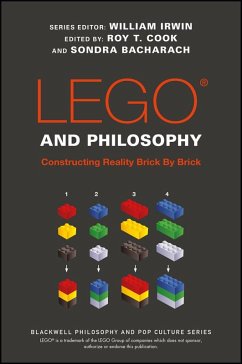
Ironic Life (eBook, ePUB)
Versandkostenfrei!
Sofort per Download lieferbar
16,99 €
inkl. MwSt.
Weitere Ausgaben:

PAYBACK Punkte
0 °P sammeln!
"e;Just as philosophy begins with doubt, so also a life that may be called human begins with irony"e; so wrote Kierkegaard. While we commonly think of irony as a figure of speech where someone says one thing and means the opposite, the concept of irony has long played a more fundamental role in the tradition of philosophy, a role that goes back to Socrates the originator and exemplar of the urbane ironic life. But what precisely is Socratic irony and what relevance, if any, does it have for us today? Bernstein begins his inquiry with a critical examination of the work of two contempora...
"e;Just as philosophy begins with doubt, so also a life that may be called human begins with irony"e; so wrote Kierkegaard. While we commonly think of irony as a figure of speech where someone says one thing and means the opposite, the concept of irony has long played a more fundamental role in the tradition of philosophy, a role that goes back to Socrates the originator and exemplar of the urbane ironic life. But what precisely is Socratic irony and what relevance, if any, does it have for us today? Bernstein begins his inquiry with a critical examination of the work of two contemporary philosophers for whom irony is vital: Jonathan Lear and Richard Rorty. Despite their sharp differences, Bernstein argues that they complement one other, each exploring different aspects of ironic life. In the background of Lear s and Rorty s accounts stand the two great ironists: Socrates and Kierkegaard. Focusing on the competing interpretations of Socratic irony by Gregory Vlastos and Alexander Nehamas, Bernstein shows how they further develop our understanding of irony as a form of life and as an art of living. Bernstein also develops a distinctive interpretation of Kierkegaard s famous claim that a life that may be called human begins with irony. Bernstein weaves together the insights of these thinkers to show how each contributes to a richer understanding of ironic life. He also argues that the emphasis on irony helps to restore the balance between two different philosophical traditions philosophy as a theoretical discipline concerned with getting things right and philosophy as a practical discipline that shapes how we ought to live our lives.
Dieser Download kann aus rechtlichen Gründen nur mit Rechnungsadresse in D ausgeliefert werden.













